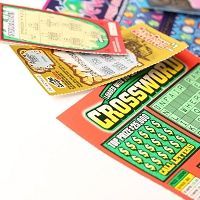- Revenue Cycle Management
- COVID-19
- Reimbursement
- Diabetes Awareness Month
- Risk Management
- Patient Retention
- Staffing
- Medical Economics® 100th Anniversary
- Coding and documentation
- Business of Endocrinology
- Telehealth
- Physicians Financial News
- Cybersecurity
- Cardiovascular Clinical Consult
- Locum Tenens, brought to you by LocumLife®
- Weight Management
- Business of Women's Health
- Practice Efficiency
- Finance and Wealth
- EHRs
- Remote Patient Monitoring
- Sponsored Webinars
- Medical Technology
- Billing and collections
- Acute Pain Management
- Exclusive Content
- Value-based Care
- Business of Pediatrics
- Concierge Medicine 2.0 by Castle Connolly Private Health Partners
- Practice Growth
- Concierge Medicine
- Business of Cardiology
- Implementing the Topcon Ocular Telehealth Platform
- Malpractice
- Influenza
- Sexual Health
- Chronic Conditions
- Technology
- Legal and Policy
- Money
- Opinion
- Vaccines
- Practice Management
- Patient Relations
- Careers
Common Sense Thoughts on the Always Alluring Lottery
The lottery is big news and a big opportunity. However, it's also effectively a regressive tax that creates millions more losers than it does millions. So why does it remain so popular?

Now that the hullabaloo has quieted down after last month’s billion-dollar Powerball lottery, let’s think about what it all means and how to prepare for the next time we are confronted by the possibility of such great, instant wealth.
First, some facts to set the table. In 2014, people in 43 states spent $70 billion on lottery tickets, an average of $300 for every American adult. That’s more than was spent on video games, books, movie tickets, and sporting events, combined, according to The Week.
Although 51% of Americans have bought a ticket at some time or other, 54% of sales come from only 5% of the population. And these folks tend to be at the bottom of the educational and income ladder. Whatever else lottery sales are, they function as a regressive tax on the poor. Ironically, buying these tickets worsens the very poverty that these unfortunate folks are trying to escape.
So then why do they, or anyone, spend so much on such a small chance of success? Many studies have looked at this common phenomenon and have pointed to the obvious: a lottery ticket is a cheap admission to a few days of fun fantasy, the “rescue” fantasy specifically. You know, the fairy godmother coming to Cinderella’s rescue. We briefly fall in love with hope.
What are the chances of success? The Powerball has the now-famous 292 million to one, with other lower paying forms having shorter, but still Draconian odds. You could be hit by lightning and attacked by a shark 10 times each and your odds of that would still be better than winning a lottery.
Where does the money go? 60% typically goes into the jackpot and 40% for taxes and supposedly for education, but many states just use the money for their general fund. The few states that do not have lotteries actually spend an average of 10% more on education.
What happens to the winners? Not what you might think. Most are completely unprepared and lose an average of one-half of their money within five years. A good many paradoxically end up in bankruptcy. Unfortunately, winning the lottery does not make you smarter in the money management arena and the temporary spike in happiness is usually back to where it was previously in less than six months.
What is a smarter way to play the lottery, aside from the obvious “Don’t”? Well, buying more tickets improves your chances microscopically. One smart thing to take notice of is that if you do win you will have a smaller chance of having to share the jackpot with others if you avoid the numbers 1 through 31. People just love betting their birthdays.
Another phenomenon of human nature that applies is the herd instinct kicking in as un-won prizes are carried forward and a big jackpot attracts the attention of the media. Even though the odds of winning remain exactly the same as when the pot was smaller, we are more attracted to a pot that is X times bigger, mainly because others seem to be interested. The attraction to the herd’s lead is subconscious and irresistible. Winning millions somehow is not as appealing as when other people are rushing forward to do it.
Lastly, if you do play, don’t lose the ticket and do check the winning numbers carefully. An amazing $2 billion in prizes went unclaimed last year, including 114 of $1 million or more. It was even on the national news recently when a $63 million unclaimed ticket finally expired. FYI - I came close to winning that jackpot; when I checked my ticket I only needed six different numbers. Oh well, there is always next time.
